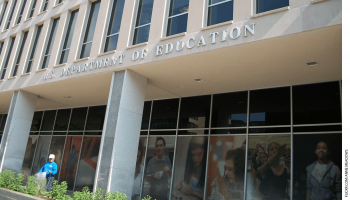
K -12 schools across the country are rushing to include critical race theory and intersectionality into their curricula and pedagogy. Critical race theory maintains that racism is entrenched in American society which what the law states activly works to consolidate and sustain white supremacy and privilege. Intersectionality holds that race, gender, class, religion, and other characteristics are associated and confer advantages on people if they're within the dominant group and disadvantages if they are not. A white Muslim woman, for example, would enjoy privileges because of her race but might experience oppression because of her gender and religion.
Last year in Raleigh, New york, the Wake County Public Schools held a teachers conference promoting these ideas as well as their application in schools. One session, \”Whiteness in Ed Spaces,\” advised teachers to \”challenge the dominant ideology\” of whiteness and to fight back when parents objected. In Loudon County, Virginia, when parents did object to the district promoting critical race theory, a Facebook number of parents and teachers who supported the practice said they ought to \”infiltrate\” groups who opposed critical race theory and use hackers to \”either turn off their websites or redirect these to pro-CRT/anti-racist informational webpages.\”
As school districts continue to infuse critical race theory into their curricula, they might confront another obstacle: the law. One charter school, Democracy Prep in Las Vegas, Nevada, is learning the hard way. In December, William Clark, a senior at Democracy Prep, sued the school, alleging that it gave him a failing grade in the \”Sociology of Change\” course and threatened to avoid him from graduating while he refused to confess his privilege openly as demanded through the school, the program curriculum, and the teacher.
Previously operating because the Andre Agassi Preparatory Academy, the school was taken over by Ny -based Democracy Prep in 2021 as part of a nationwide expansion by that charter network. Democracy Prep modified the school's civics curriculum to place heavy emphasis on intersectionality and demanding race theory. A lot of students are now necessary to take the yearlong \”Sociology of Change\” course. The category materials mandate that students \”label and identify\” their racial, religious, sexual, and gender identities after which determine whether \”that part of your identity has privilege or oppression mounted on it.\” The course also obligates students to label white, male, Christian, and heterosexual identities as inherently oppressive and privileged because of their social dominance. The course's teacher has labeled her very own race as privileged, her gender as oppressed, her agnosticism as oppressed, and her bisexuality as both privileged and oppressed. The category content also informs students that \”REVERSE RACISM Isn't REAL!\” (emphasis in original).
Clark began using the course in fall 2021 and almost immediately protested the mandate to publicly announce and label his identities. Clark is biracial: his mother is Black and his father, now deceased, was white. He has \”green eyes and blondish hair,\” and, based on his complaint, \”is generally regarded as white by his peers.\” When he and his mother objected towards the forced confessions of privilege and asked for an alternative accommodation to satisfy the program requirement, the college told him that if he did not complete the course, he would not graduate. Because he would not complete his required assignments, the teacher gave him a D-, a failing grade in line with the school's standards, prompting him to file for suit.
According to Clark's attorneys, Democracy Prep violated Clark's constitutional and statutory rights. Pointing to West Virginia v. Barnette (1943), their complaint argues that forcing a student to publicly confess his identities like a white, male Christian and then attach \”official, derogatory labels\” to them violates the very first Amendment's prohibition on compelled speech. In Barnette, the U.S. Supreme Court struck down West Virginia's mandatory flag-salute requirement of public school students. Writing for most, Justice Robert H. Jackson asserted \”if there is any fixed star within our constitutional constellation, it is that no official, high or petty, can prescribe what shall be orthodox in politics, nationalism, religion, or any other matters of opinion or force citizens to confess by word or act their faith therein.\”
Clark's lawyers also allege that the school's behavior created a \”hostile educational environment\” in violation of Title VI from the Civil Rights Act of 1964, which states that \”No person in the United States shall, on the ground of race, color, or national origin, be excluded from participation in, be denied the benefits of, or be subjected to discrimination under any program or activity receiving Federal financial assistance.\” Here additionally they point out that the school actually encourages students to \”push back\” against school policy but that when Clark accomplished it they threatened and punished him.
For good measure, Clark's complaint contends that the school's treatment of him also violates Title IX, which forbids sex discrimination. Designating him being an \”oppressor\” based on his sex and gender and \”categoriz[ing] and stereotyp[ing]\” those identities in a \”deliberately pejorative and offensive manner\” constitutes sexual harassment under today's interpretation of Title IX.
In response, school officials have made two primary arguments. First, they say that schools \”have broad discretion over their curriculum . . . without running afoul from the First Amendment.\” They contend that Clark wasn't, in fact, compelled to speak whatsoever, since the assignments didn't require him to affirm his identities publicly, and that he did not have to support any particular belief. \”Courts,\” the college asserts, \”routinely reject students' claims that coursework violates the First Amendment if this requires these to profess no particular belief.\” In response, Clark's attorneys explain that he actually had to affirm his identities to his teacher and then any other personnel who had access to his assignments. Simply because he did not have to state his identities towards the entire class didn't matter, because \”speech is not less compelled since the speaker is not required to speak to the biggest possible audience.\” As well, the program required students to assent to \”highly contested\” claims like \”people of color cannot be racist,\” Clark's attorneys say.
Second, Democracy Prep argues that giving a student a low grade and threatening to avoid him from graduating was only a \”discouragement,\” not a penalty. The school contends further that it will be a violation from the court's role to intervene, that doing so would constitute acting as a \”super-school board\” and \”directing professional educators to administer particular grades\” and \”teach courses using particular assignments or strategies.\” This argument might well possess some force with judges and justices across the ideological spectrum who don't need to see themselves drawn into micromanaging curriculum and instruction in individual schools or classrooms. However, the same issue grew up and rejected in Barnette when the court ruled that the Constitution \”protects the citizen against the State itself and all of its creatures-Boards of Education not excepted.\”
Despite the defendants' claims that the class and Clark's punishment were legally unobjectionable, the college relented in early April, offering to expunge his grade and allow him to opt out of the course. Undoubtedly, this retreat was encouraged by a federal judge's declaration at a February hearing that Clark was \”likely to achieve success on the merits\” since the \”speech is probably compelled.\” The defendants, the judge said, would therefore need to \”justify the curriculum under a strict scrutiny test,\” the court's most exacting level of review, which he said the class exercises probably could not survive.
Going forward, one might evaluate whether lawsuits like Clark's are inclined to succeed by asking what a court would say if the identities were reversed. That is, what if a teacher forced students to affirm a theory that held that being minority or female should inherently be related to negative traits? (This is, obviously, not the same as requiring students to acknowledge historical facts such as the exclusion of ladies in the franchise or even the information on slavery and Jim Crow laws.) It's difficult to imagine a court stating that doing this wouldn't violate the Constitution and civil-rights statutes. Of course, as William Clark learned, the nostrums of critical race theory and intersectionality forbid reversing those categories. But the nostrums of critical race theory and intersectionality aren't what the law states.





